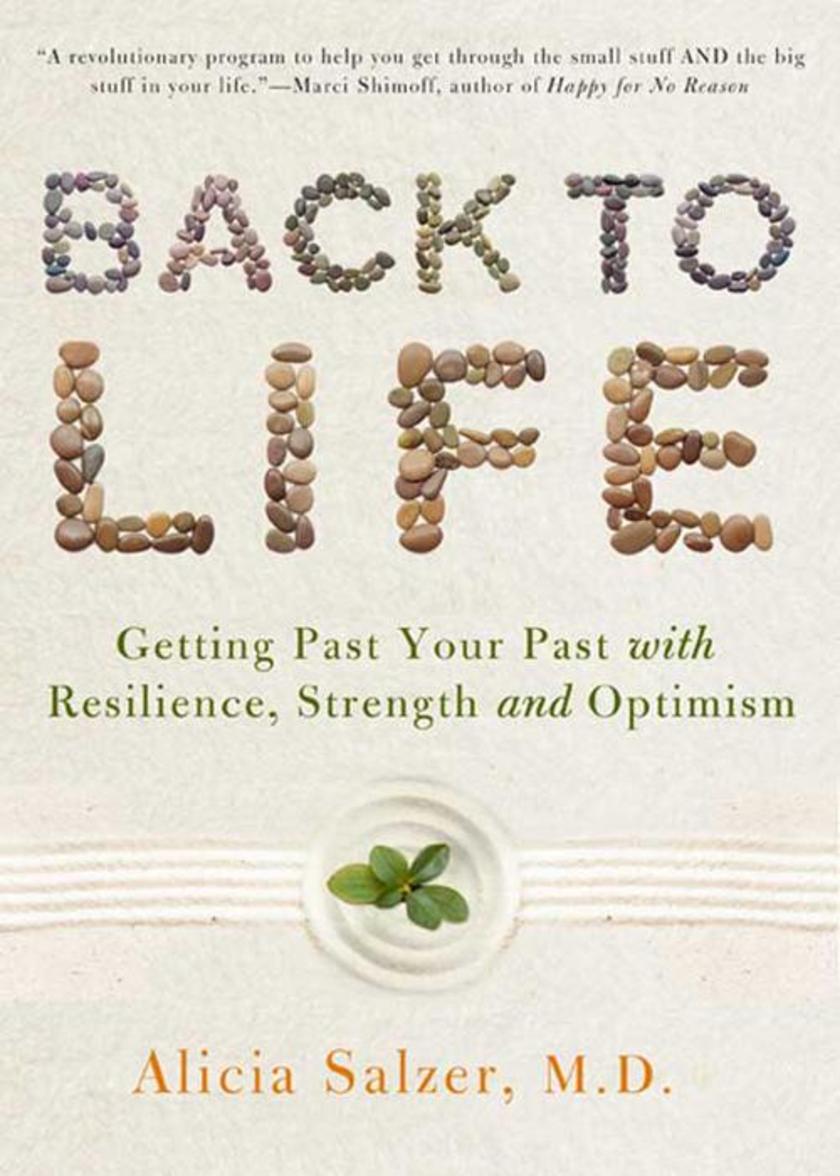
HarperCollins e-books
¥145.91
Back to Life is a feel-good approach to overcoming that lets you try on the skills of the heroes you most admire. From icons of survival like Rosa Parks and Nelson Mandela to contemporary heroes like Michael J. Fox and Elizabeth Edwards, this book allows you to see what resilient survivors actually do when they feel lousy.This is a revolutionary approach to feeling better, rooted in the science of positive psychology and resilience theory, and would help anyone get a dose of soul food into their emotional diet; but these techniques are specially tailored to those trying to overcome traumas big and small from Big-T Traumas, such as combat, abuse, and bereavement, to challenges one might think of as little-t traumas, like breakups, betrayals, job loss, health problems, and financial hardships. After years of working in the trenches of psychiatry, it became clear to Dr. Alicia Salzer that we needed some new methods to help people overcome, since the old methods often proved too painful for many to bear. It's all about being in the present and focusing on the future no retelling and revisiting the past, no opening Pandora's box, no picking at old scabs. Back to Life is a creative and empowering way to learn the habits of resilient survivors while getting to know what you stand for, what makes you happy, and what emotions you need in your diet in order to thrive. In this book you will create a "holistic pillbox" of ten stones each symbolizing a healthy new way of coping that you can utilize when your past rears its head.The truth is, there have always been people in our midst who remain positive and passionate despite enormous challenges while others just get stuck. This is the secret playbook of those people, and it's full of accessible and fun exercises to help you try on the rose-colored glasses of those survivors we so admire.

Running on Faith
¥145.91
In 2008, Jason Lester became the first person with a disability to finish the Ultraman World Championship alongside able-bodied competitors. With the use of only three limbs, Jason competed in one of the most demanding endurance races in the world, swimming 6.2 miles, biking 261.4 miles, and running 52.4 miles to the finish line. Jason has completed over seventy triathlons, biathlons, marathons, Ironmans, and Ultramans. In 2009, he became the first male triathlete to win an ESPY Award and the fifteenth athlete in the history of Ultraman to complete both the Ultraman World Championship and Ultraman Canada in the same year. Yet Jason Lester's life as an athlete almost never happened. When a speeding car ran a red light, a bike ride to the local video store nearly became Jason's last, sending him 130 feet into the air and ultimately to the hospital with twenty broken bones. The pain was intense and long rehabilitation grueling, compounded by the sudden death of his father (his best friend and mentor) and the realization that his right arm was paralyzed. Only twelve years old and struggling to heal amid the grief, Jason miraculously found the strength to fight his way back. Without the use of his arm, he refused to give up the sports he'd grown to love, recommitting himself to life and ultimately surpassing goals that few dared to set.Running on Faith reveals how to develop the mind-set of a true competitor and includes riveting stories of the precarious and often unforeseen conditions encountered on the race path jellyfish-infested waters, suffocating heat, and blinding sheets of rain. With passion, dedication, and strength of purpose, Jason shares his experience facing extreme challenges head-on, gleaning insight from each trial. He offers the principles he's learned to live by in order to accomplish his goals and shows how they can be applied to the tests we all face. An inspirational guide to overcoming adversity, recognizing God's guiding hand in our lives, and achieving our dreams, Running on Faith is a spirited testament to the power of faith.
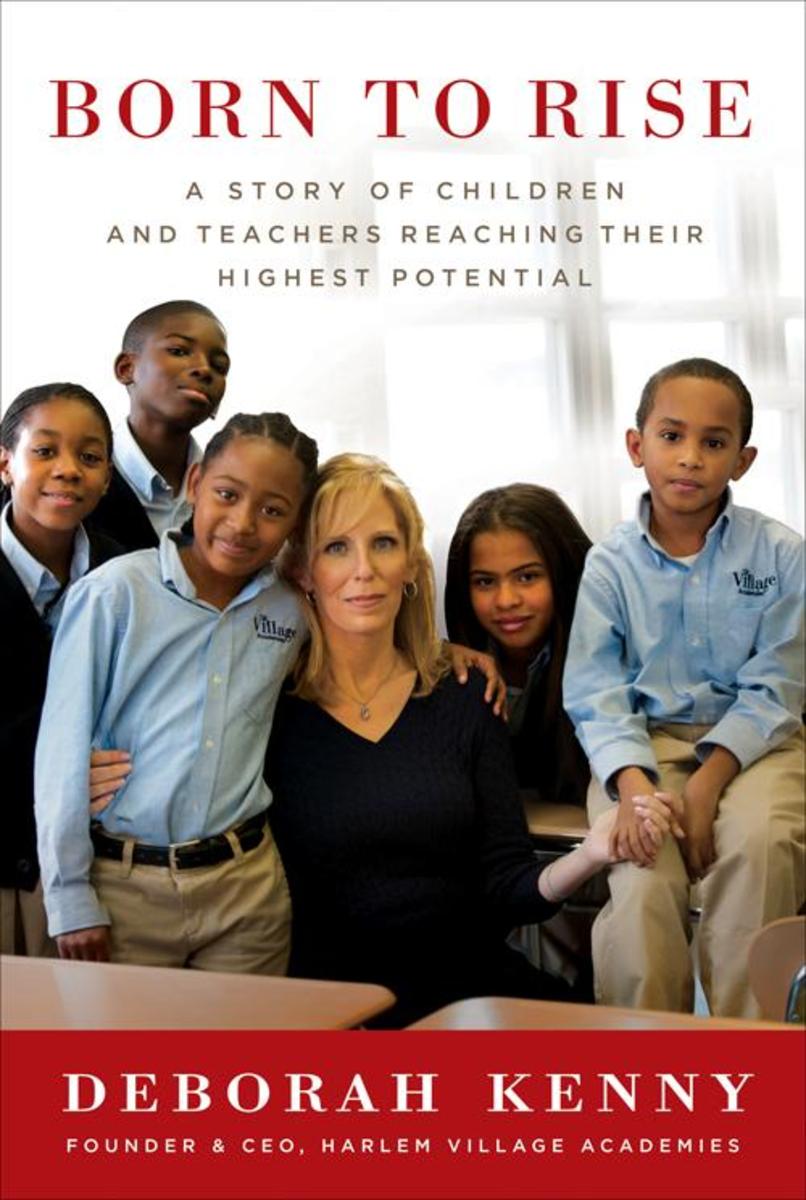
Born to Rise
¥145.91
Deborah Kenny was a young mother of three small children seeking to make sense of her life amid the despair of her husband's untimely death when she decided to devote herself to radically reinventing public education. Born to Rise recounts a journey that led Kenny to risk her life savings to open schools in Harlem while proving that all children, regardless of socioeconomic circumstances, can learn at high levels. Students enter Harlem Village Academies several years behind grade level, but in just a few years they are transformed, ranking among the highest in the nation with 99 percent of eighth graders meeting proficiency standards in math, science, and social studies. How do they do itFor the first time, Kenny shares the groundbreaking strategy that took ten years to develop. She reveals the secret to creating a powerful workplace culture that attracts the most talented people and brings out their passion and highest performance a culture that produces stunning student achievement and teachers who regularly use words like magical to describe the workplace environment. Born to Rise is the moving and strikingly candid account of Kenny's deeply personal dream: to pursue social justice for our nation's most vulnerable children. Part memoir, part manifesto, it is a hopeful and practical exposition of what it takes to transform schools and create organizations where the staff lights up with entrepreneurial drive. It is a must-read for anyone who cares about children and the future of this country, as well as for leaders who want to motivate and inspire fierce dedication in their employees.
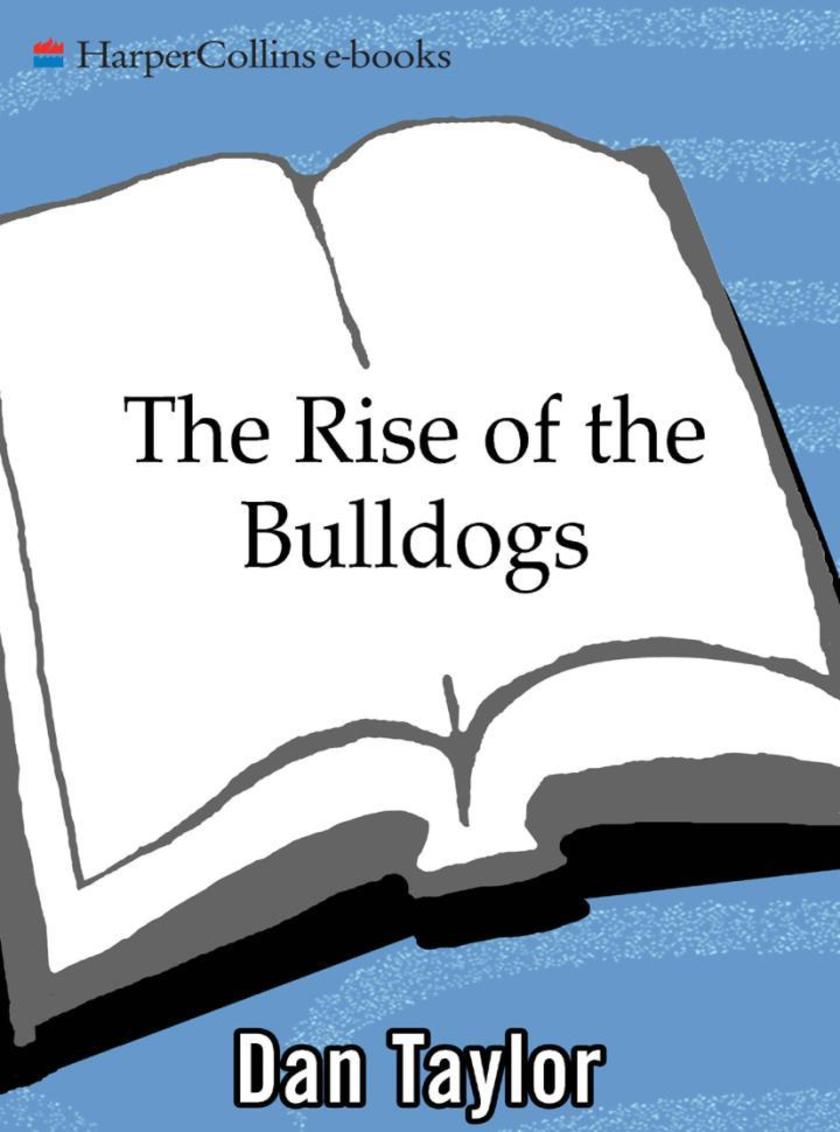
HarperCollins e-books
¥145.91
The The Rise of the Bulldogs tells the extraordinary story of the unranked 2008 Fresno State Bulldogs and their remarkable journey from a seemingly lost season to NCAA National Champions.Baseball fans across America were held spellbound by Fresno State's nail-biting and improbable adventure through the NCAA playoffs. A record viewing audience of almost 2 million households tuned in to ESPN's live coverage as Fresno State grabbed their crown. Now in this gripping on-the-field account, readers can experience what Baseball America magazine columnist John Manuel described as "the biggest upset winners in College World Series history, perhaps all of college sports." Only a handful of people close to the team know the inside truth about the turmoil the injuries, the conflicts, and the betrayals that took place during the Bulldogs' momentous season. Television sportscaster Dan Taylor is one of those insiders, and he reveals the real story in these pages.Taylor shows how late-season tumult forced a reevaluation of the commitment, direction, and relationships among the players themselves; how the team bonded as a unit and developed leadership from within; and how these changes led to a positive and carefree brand of baseball. Ultimately, the group found the belief they needed in one another in the midst of the most unlikely crowning of a national champion in the history of collegiate sports. This is the ultimate underdog story, with a long shot coming out on top against overwhelming odds.
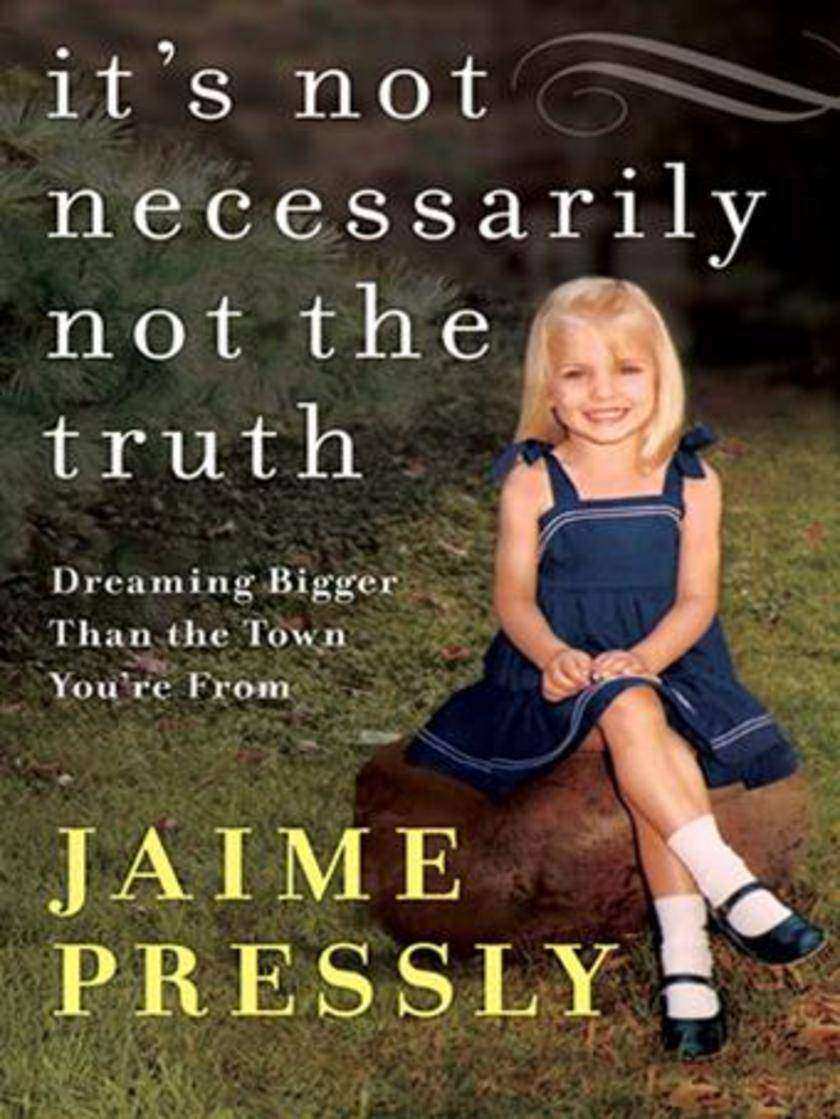
HarperCollins e-books
¥145.91
America knows Jaime Pressly as Joy Turner, the feisty cheatin' ex-wife of Earl Hickey on the NBC hit show My Name Is Earl. Like her character, the Emmy Award-winning actress is, at heart, a smart, vibrant, small-town Southern girl. In this humorous and honest book, she recalls her journey from Kinston, North Carolina, to Hollywood, California, to motherhood, and the fortitude it took to make her dreams come true, including separating from her troubled past, overcoming her own bad choices, and dealing with success when it finally came her way.Pressly speaks openly of her extremely colorful family and of her growing understanding of how their lives have been shaped by larger forces, including prejudice, power, privilege, love, loss, and longing. She shares how the lessons she learned from their lives impacted her own journey and helped her succeed where so many others have failed. Inspiring, heart-wrenching, and laugh-out-loud funny, It's Not Necessarily Not the Truth offers a slice of American life sure to touch the hearts of readers everywhere.
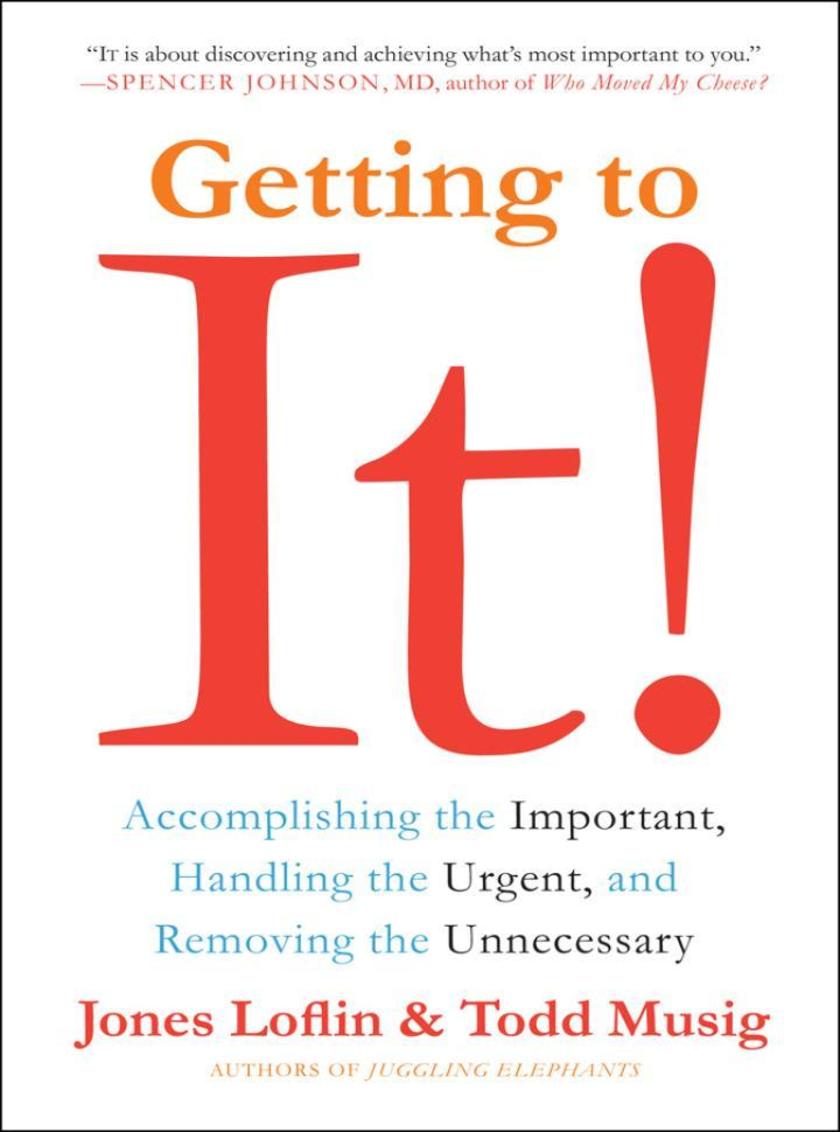
Getting to It
¥145.91
From the authors of Juggling Elephants comes the only guide you need to sort through the many priorities in your life, know what your it (Important Thing) should be, and understand how to get it done.How busy are youIn the daily struggle to get it all done, what are you forgettingIs your mind constantly racing through lists of all the things you could and should be doingDoes your day often feel as though you're treading water in an ocean of rushes and deadlines, trying to keep from drowning while handling the increasing demands of your work and life?Don't give up help is on the way. You just have to find your it. The Important Thing. Define it. Plan it. Focus on it. Get excited about it.Identifying IT isn't just the first step in the process of getting focused and heading in the right direction, it's every step. Getting to It provides the necessary tools to accomplish the important, handle the urgent, and get rid of the unnecessary. Want to enjoy a more fulfilling lifeGet to it.
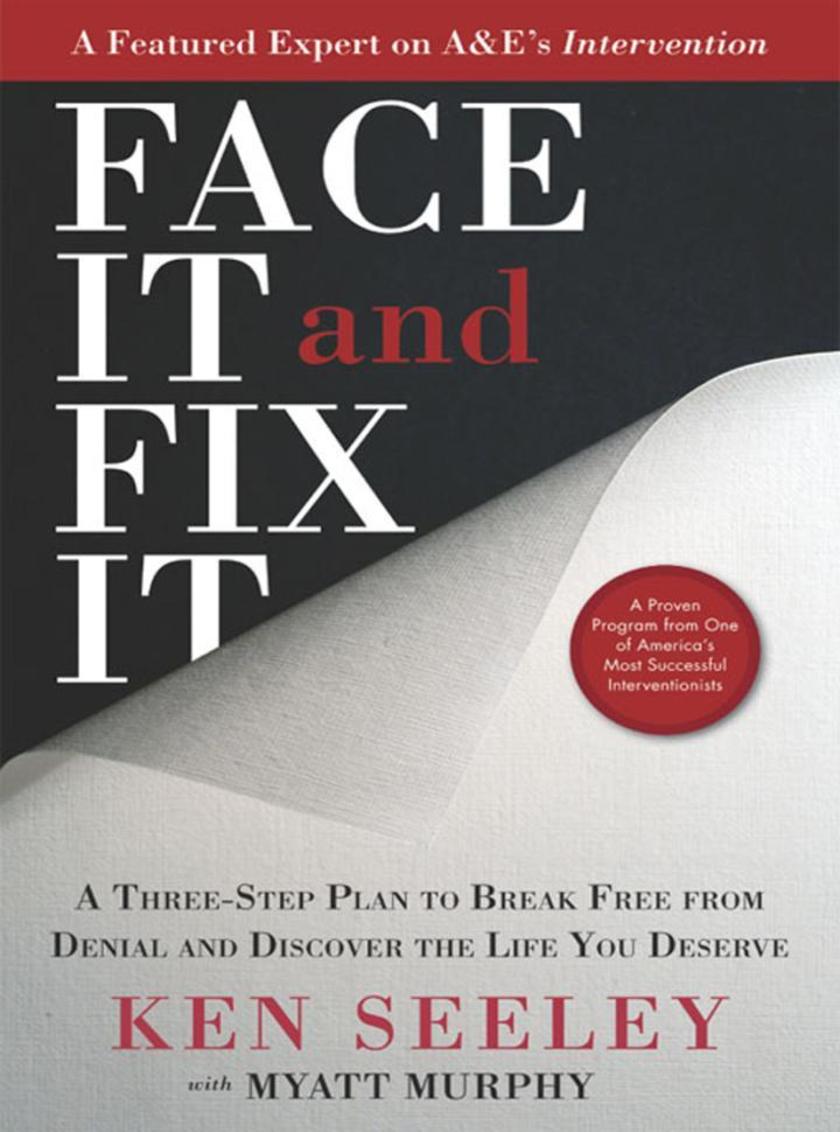
HarperCollins e-books
¥145.91
World-renowned interventionist Ken Seeley, one of the hosts of A&E's hit television series Intervention, has spent the past twenty years helping people and their families deal with and overcome life-threatening addictions. His clients have ranged from the homeless to multimillionaires, each needing professional help with every problem imaginable, including alcoholism, drug dependency, excessive gambling, sexual addiction, abusive behavior, and mental disorders. A few years into his career, Ken realized that the one common characteristic with each of his clients was denial. He has since built his success on a proven program for pinpointing and dealing with this core issue. Whether coping with a severe or a soft addiction, a life-threatening situation, or just an impediment to true happiness, we're all in denial about something. It might be small and seemingly innocent, such as the fact that you're not trying to excel in your job as much as you could or should be. Or it could be much larger and even potentially lethal, such as a full-blown addiction that at this very moment is destroying your life. The truth is, no matter who you are, no matter how small or large your problems may seem, denial is holding you back from living your life to the fullest. Denial is the number one symptom of addiction. It's the mask that lets addicts ignore and avoid the consequences of their actions. But what most people don't know is that denial is also the fuel that creates an addiction in the first place as well as nearly every other disorder, behavior, and habit that can negatively affect your life. In Face It and Fix It, Seeley leads readers through a three-step process to remove life-damaging denial in order to live balanced and healthy lives. He helps readers first to identify life-damaging behaviors; next he gives the tools necessary to break down the walls that denial builds up over time; and finally he shows how to maintain balanced lives and relationships.Whether you're looking for help for someone you love or struggling with an addiction of your own, Face It and Fix It will leave you with a greater sense of self-awareness and the skills you need to both improve your relationships and to live the life you deserve.
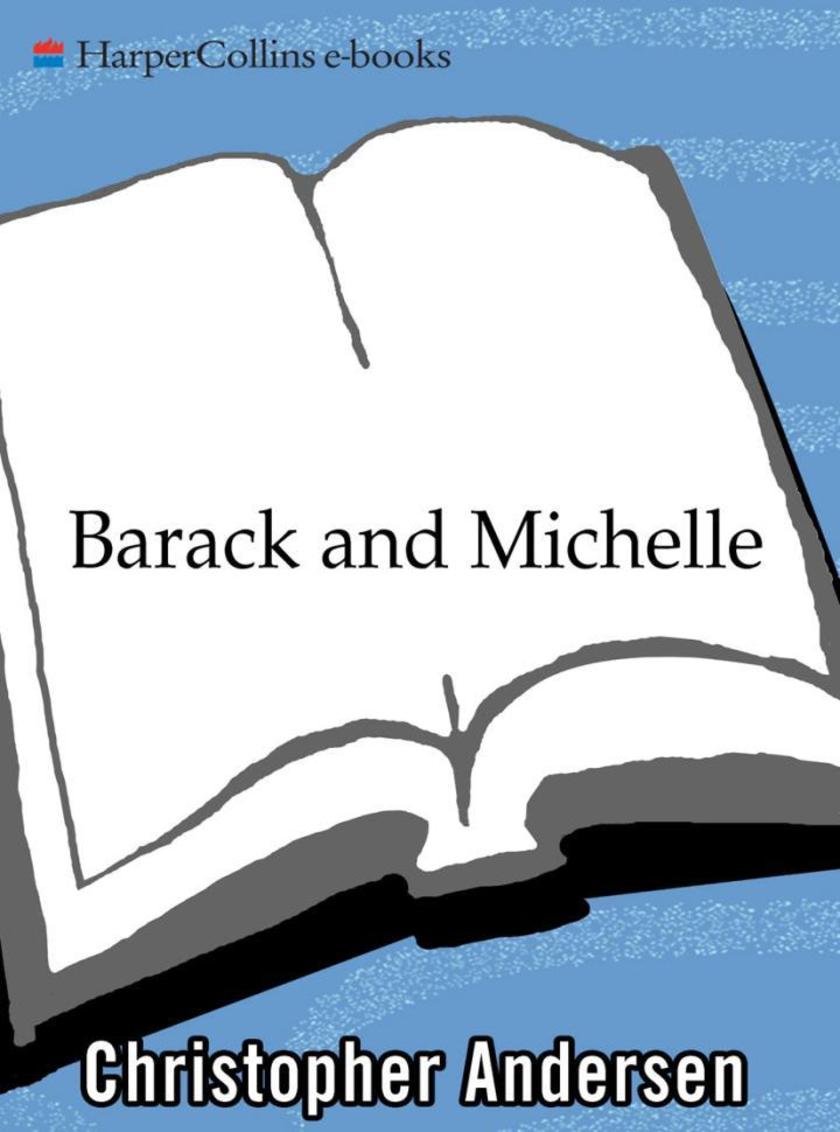
HarperCollins e-books
¥145.91
"She is my rock the one person who keeps it real." Barack"I don't want anybody to think that it's easy. . . . We have a strong marriage, but it's not perfect." Michelle They exploded onto the world scene and within a matter of a few short years captured the ultimate political prize. In so doing, they became a First Couple like no other: He the biracial son of a free-spirited Kansas-born woman and a mercurial Kenyan father who abandoned him at an early age was raised in Hawaii and Indonesia, educated at Columbia and Harvard, and launched his political career in America's heartland. She, by contrast, was the product of a solidly middle-American family with roots planted firmly in Chicago's working-class South Side paving the way for her to achieve her dreams of an Ivy League education and a position at one of the nation's top law firms.By the time they claimed the White House in one of the most hotly contested presidential races in modern history, Barack and Michelle Obama were seen by millions around the world as the new Jack and Jackie Kennedy brilliant, attractive, elegant, youthful, exciting. Accompanied by their two young daughters, Malia and Sasha, the Obamas would arrive at 1600 Pennsylvania Avenue with the promise of a new Camelot all but assured.Given the obvious historic significance of what they have accomplished together, the marriage of Barack and Michelle stands as one of the great personal and political partnerships in American history. Yet, incredibly, the true nature of that relationship has remained a mystery. Until now.In the style of his No. 1 New York Times bestsellers The Day Diana Died and The Day John Died, as well as his bestselling books about the Kennedys, the Clintons, and the Bushes, author Christopher Andersen draws on important sources some speaking here for the first time to paint the first complete, compelling portrait of America's first black First Family. Among the many intriguing insights and stunning revelations: New behind-the-scenes details of the Obamas' courtship and marriage and the lovers who went before. The early tragedies that shaped both Barack's and Michelle's personalities, and how those events haunt them to this day. Also, new information about Barack's rootless childhood, at times tortured adolescence, and the true extent of his early drug use. How Barack's ambition put a strain on their relationship from the very beginning, how close the Obamas really came to breaking up, and how Michelle made the difficult decision that saved their marriage. The little-known near-tragedy that brought Barack and Michelle closer than they had ever been. How Michelle may have saved her husband's presidential campaign, and her surprising behind-the-scenes role as the president's chief advisor. The pressures and delights of raising two young girls in the relentless glare of the media, and how, like Jack and Jackie Kennedy before them, Barack and Michelle strive to make the lives of America's two most famous children as "normal" as possible. Barack and Michelle: Portrait of an American Marriage is an intimate and ultimately riveting look at their unique partnership, and the humor, faith, fortitude, and grace that defines it. It is, above all, an extraordinary American love story.

Shonen Manga
¥145.91
A step-by-step guide to all the tricks-both freehand and digital-to creating the best manga characters, Shonen Manga is a fun, easy to read manga manual for artists of all ages and languages. Focusing on Shonen-style manga and anime (a genre targeting young boys-”Shonen” means young boy, referring to elementary through grade school age groups), Shonen Manga is a practical, hands-on guide to learning the skills of action-packed drawing. It includes detailed information on how to apply digital colour, 3D designs, vectorial drawing, and a host of other fascinating and useful design applications. Each project in Shonen Manga includes step-by-step instructions specifying software, tools, and professional tricks to achieve the gritty eyes, roaring faces, and clenched fists of teen heroes, martial art masters, ninja girls, and violent samurai, integral to the Shonen genre. Shonen Manga will walk an audience of manga artists, illustrators, and graphic designers through the basic stages of manga production, beginning with black-and-white sketches and ending with vibrant, fully costumed characters.

Monster Book of Manga: Gothic
¥145.91
An extraordinary new volume in the bestselling Monster Book of Manga books Gothic features thirty dark characters and easy-to-follow instructions teaching you how to create them.The Monster Book of Manga: Gothic is the ultimate guide to creating the hottest, most cutting-edge manga. Inside you'll find thirty devious and mysterious manga characters, along with step-by-step instructions taking you from initial line drawings to graphic, full-color designs. The characters include rebellious and subversive youth from rock stars and dancers to gothic cheerleaders and a beautiful, modernized gothic Lolita. There are also dangerous cyberpunks, vampires, and warriors, as well as a gothic space queen and a satanic being. Unique in its content and the elegance of its characters, The Monster Book of Manga: Gothic is the only comprehensive guide to creating gothic manga and a must-have for all new and experienced manga artists alike.
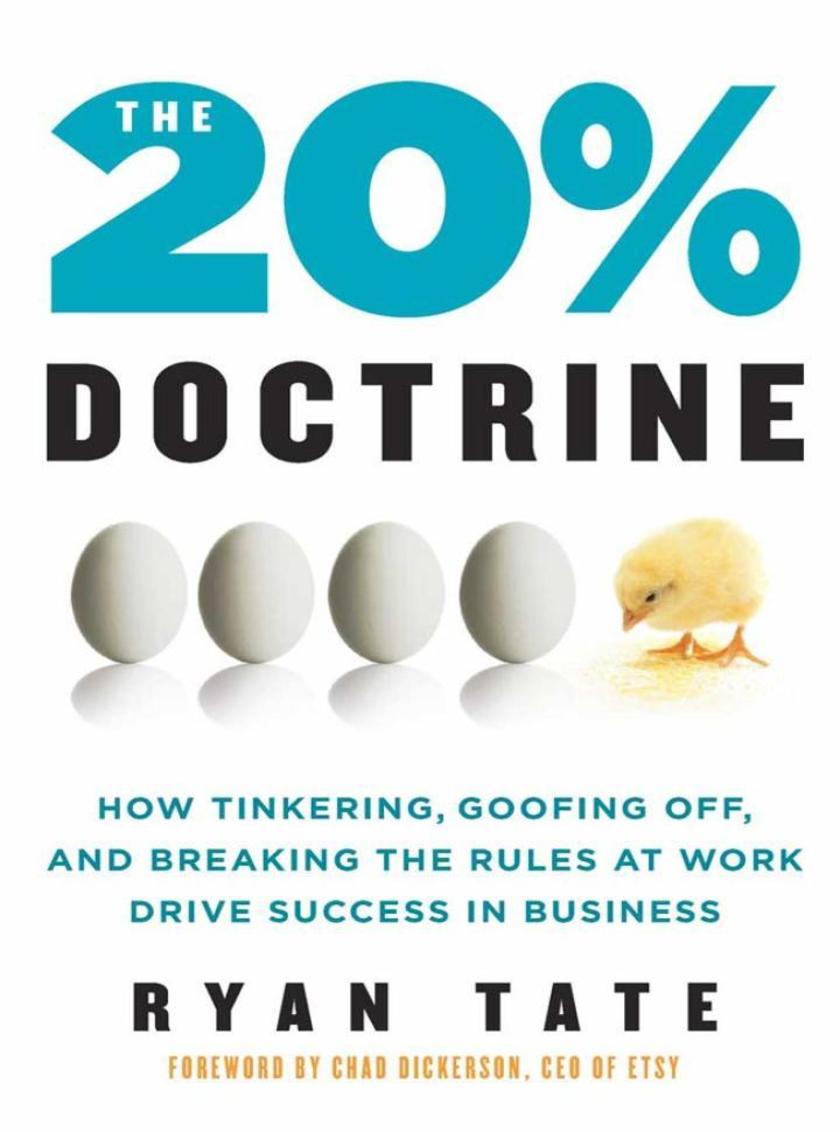
The 20% Doctrine
¥145.91
An inspiring exploration of how unorthodox business practices and the freedom to experiment can fuel innovationWe're at a crossroads. Many iconic American companies have been bailed out or gone bankrupt; others are struggling to survive as digitization and globalization remake their industries. At the same time, the tectonic forces disrupting U.S. corporations ubiquitous bandwidth and computing power, cheap manufacturing and distribution have enabled large organizations to foster new innovations and products through experiments that are at once more aggressive and less risky than they would have been twenty years ago. At companies such as Google, employees are encouraged to spend 20% of their work time on projects they're personally interested in. Almost half of Google's new product launches have originated from this policy, including Gmail and AdSense. Now other companies have adopted the concept, providing them a path to innovation and profits at a time of peril and uncertainty and offering employees creative freedom when many are feeling restless.The 20% Doctrine is about goofing off at work, and how that goofing off can drive innovation and profit. Here Ryan Tate examines the origins and implementation of 20% time at Google, then looks at how other organizations such as Flickr, the Huffington Post, and even a school in the Bronx have adapted or reinvented the same overall concept, intentionally and serendipitously. Along the way, he distills a series of common themes and lessons that can help workers initiate successful 20% style projects within their own organizations. Only through a new devotion to the unhinged and the ad hoc can American businesses resume a steady pace of development and profitability.

A Healthy You
¥145.91
As the host of A Healthy You & Carol Alt, supermodel, actress, bestselling author, raw food expert, and entrepreneur Carol Alt has teamed up with leading experts and doctors to offer a unique blend of alternative and practical health and wellness advice. Now, for the first time, Carol has collected the very best information, advice, and tips from the show all in one place! In A Healthy You Carol and her top experts show readers how to approach all aspects of life with energy and vitality—from nutrition and fitness, to beauty, skin care, and fashion.Drawing on her years of experience as a raw food advocate and ambassador for a mindful, health-focused lifestyle, Carol guides readers of all ages with simple, effective advice on how to live a more balanced, healthy, beautiful life. She demystifies and takes readers step-by-step through the recipes, regimens, diets, and products—from raw eating to do-it-yourself, chemical-free beauty products—that really work.Carol curates advice from her favorite doctors, fitness gurus, dietitians, and the hundreds of experts she's interviewed on her television show. Never afraid to try the trends that may seem unusual, difficult, or fringe, Carol is devoted to making alternative ideas accessible to everyone. In A Healthy You, she brings readers the best of what she's found. Filled with practical advice, expert guidance on living a cleaner, greener lifestyle, and engaging stories from Carol's own life, A Healthy You will inspire everyone to take charge of his or her health every day, in new and exciting ways.

Keto in an Instant:More Than 80 Recipes for Quick & Delicious Keto Meals Using Y
¥145.91
From the bestselling author of The Easy 5-Ingredient Ketogenic Diet Cookbook comes an essential guide to making keto meals in the Instant Pot.Bestselling author Jen Fisch knows that making lifestyle changes is challenging. Several years ago, she was suffering from multiple autoimmune diseases when her doctor suggested she try the keto diet. Her first thought was, That seems too hard, and I don’t want to give up my favorite foods. But soon, after a lot of trial and error and recipe testing and developing, the single working mom figured out how to make a keto eating plan work for her and her daughter. She turned her tips and recipes into a hugely successful blog, Keto in the City—and later included them in her cookbooks. Today, Jen is an established authority in the keto community and regarded as a trusted expert. In her new cookbook, Keto in an Instant, Jen explores one of the time-saving cooking tools her audience loves most: The Instant Pot. Keto in an Instant features more than 80 recipes that make use of the pressure cooker, spanning every meal of the day. From hearty dishes like Short Rib Ragu, Shredded Brisket Bowls, and Chicken Parm Meatballs; to soups and stews like Buffalo Chicken Chowder, Lasagna Soup, and Coconut Shrimp Soup; to treats like Blackberry Pudding Cupcakes, Maple Bacon Pancake Bites, and Strawberry Cinnamon Rolls, Jen offers healthy and delicious dishes that every member of the family can enjoy without feeling deprived.In addition to healthy, mouthwatering recipes, Jen shares her personal success story, the key principles of keto, and a comprehensive guide to foolproof cooking with the Instant Pot. She makes the keto lifestyle simple, delicious, and budget-friendly—for everyone.

The Heisman
¥145.69
Close your eyes and picture the Heisman Trophy. The form is easyto conjure, a graceful, fluid posethat is football past and football present in one dignified figure ...The story of the Heisman Trophyis an american epic.-- from the PrefaceNo sport in America can match the pageantry, raw emotion, and thrilling tradition of college football. It is a world in which a twenty-year-old kid can become a national sensation overnight, in which coaches are deified and rivalries burn white-hot.And in this world, there is no individual award so revered as the Heisman Trophy. Every yearsince 1935, one player has run, thrown, or kicked his way into the pantheon of American sport. From Nile "The Cornbelt Comet" Kinnick in the '30s, West Point's legendary backfield of Doc Blanchard and Glenn Davis in the '40s, and Paul Hornung in the '50s to Ernie Davis, the Jackie Robinson of college football, miracle worker Doug Flutie, and modern-day Sunday warrior Eddie George, the history of the Heisman gives us insight into the heart of America through the lives of the heroes that entranced an entire nation for one brilliant season. Extraordinary in ways that transcend athletic ability, Heisman winners have gone on to become war heroes, Fortune 500 CEOs, and high-level politicians.As John Heisman himself once said, the Heisman Trophy "is meant to exemplify the grandeur of a thousand men." Here within these pages are intimate portraits of some of the winners who also exemplify the grit and glory of America's beloved game and of the coaching giants such as Bear Bryant, Woody Hayes, and Red Blaik, who inspired the winners to achieve.Told in the evocative words of Pulitzer Prize nominated journalist Bill Pennington, their heart-stopping experiences on the field and off will have Americans enthralled until the final page is turned.

How I Broke into Hollywood
¥145.69
Hollywood's survivors share their secrets to success -- where, they came from, how they made it, and how you can too In a heyday of reality television and overnight stardom, it's easy to forget that most players had to work hard to make it big. How I Broke into Hollywood brings together dozens of Tinseltown's greatest success stories, from legends Sydney Pollack and Lalo Schifrin to rising starlet Erika Christensen to über-producer Gavin Polone. Icons of their industry -- writers, actors, directors, designers, cinematographers, executives and more -- they were once outsiders themselves, and their beginnings have all the grit and glamour of the best Hollywood films. Among the figures profiled: Comedian Bernie Mac, whose earliest stand-up shows were on subway cars and at funeral parties. Actor Charles Dutton, who was convicted of manslaughter at age seventeen, then went on to the Yale School of Drama and a brilliant career on stage, screen, and television. Actor Peter Gallagher, who suffered a crippling bout of stage fright moments before leaping onstage as Snoopy -- but whose jitters moved him to a performance that brought the audience to its feet and launched his career. Superagent Jay Kanter, who started out as a mailroom guy -- before nabbing Marlon Brando as his first star client. Producer Caryn Mandabach, whose first job was making beer runs for the production guys at the Olympic Auditorium -- but who paid attention and soon was developing such hits as The Cosby Show, Roseanne, and That '70s Show. Director John Landis, who hunted down his first job as a production assistant by buying a one-way ticket to London, then hitchhiking and hopping trains all the way to the set . . . in Yugoslavia. How I Broke into Hollywood shares the voices of nearly fifty Hollywood survivors as they revisit the highs and lows of their careers in their own words, dishing dirt and imparting the wisdom they gained along the way. We learn what drew them to the industry and what made them stay, what inspired and appalled them, and what secrets propelled them to professional stardom. (Hint: a good attitude -- and an unflappable ego -- don't hurt.)The road to success is a bumpy, angst-ridden, star-studded thrill ride -- but for these insiders, at least, it was worth every pitfall and lesson learned. Often hilarious, always instructive, How I Broke into Hollywood is an irresistible read for anyone fascinated by those who've made it big . . . and for people everywhere hoping to make it big themselves.

HarperCollins e-books
¥145.69
From the author of the bestselling The Modern Girl's Guide to Life comes a must-have book for the young mom, including best-kept secrets, practical advice, and multiple solutions for problems from birth to age four Just when you thought you could cook (hey, one meal counts), clean (if the queen was coming), and seduce a man (well, long enough to get married), life throws you a curveball that makes all of your previous ineptitudes in life pale in comparison. With the appearance of one little extra line on a pregnancy test, you're thrown into a world of covering up leaks on shirts and taking a pacifier away from a two-year-old who has the grip of a pit bull.In this funny, smart, and honest book, Jane Buckingham cuts through the clutter to give you simple information and practical advice for navigating the different stages of motherhood. From how to get your child to sleep and how to wean, to how to get him off the pacifier and how to stop his tantrums, this book will help moms feel in the know and in control! Some of Buckingham's favorite tips: If your baby has a hard time feeding because of a stuffy nose, turn on the shower to steam up the bathroom and feed her there. Put your children's paints in an empty egg carton -- it's the perfect size, and there's no mess to clean up when you're done. Use an old raincoat with the arms cut off as a smock. You should buy a new car seat, rather than borrowing a friend's old car seat, as there are constant safety upgrades. Also, be sure you are the person registered to that car seat (send in that registration card!) so that you'll be notified in case of a recall. Keep the three-day rule in mind: Almost any bad habit can be broken in three days. Granted, they may be tough, torturous days, but you can do it! The Modern Girl's Guide to Motherhood helps modern moms do it all with love, style, and flair!
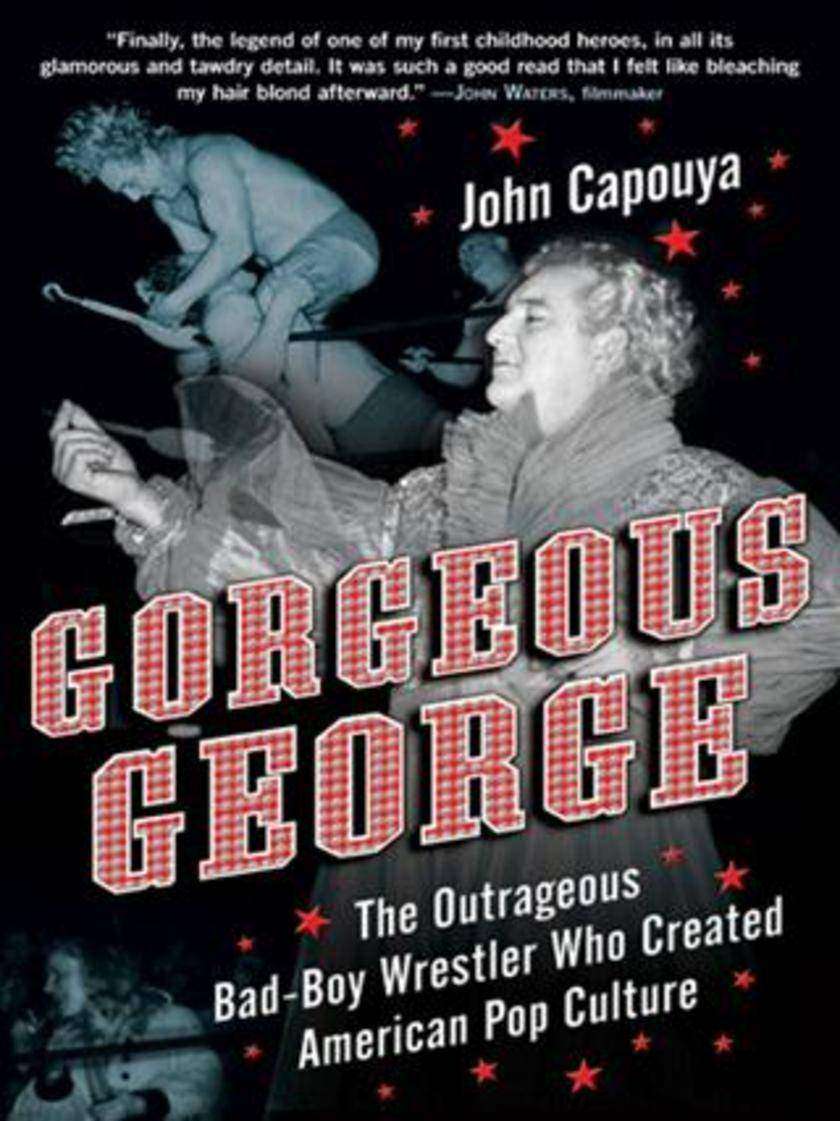
Gorgeous George
¥145.69
This is the first-ever biography of the legendary wrestler Gorgeous George, filled with incredible never-before-told stories. George directly influenced the likes of Muhammad Ali, who took his bragging and boasting from George; James Brown, who began to wear sequined capes onstage after seeing George on TV; John Waters, whose films featured the outrageous drag queen Divine as an homage to George; and too many wrestlers to count. Amid these pop culture discoveries are firsthand accounts of the pro wrestling game from the 1930s to the 1960s. The ideal American male used to be stoic, quiet, and dignified. But for a young couple struggling to make ends meet, in the desperation born of the lingering Depression and wartime rationing, an idea was hatched that changed the face of American popular culture, an idea so bold, so over-the-top and absurd, that it was perfect. That idea transformed journeyman wrestler George Wagner from a dark-haired, clean-cut good guy to a peroxide-blond braggart who blatantly cheated every chance he got. Crowds were stunned they had never seen anything like this before and they came from miles around to witness it for themselves.Suddenly George guided by Betty, his pistol of a wife was a draw. With his golden tresses grown long and styled in a marcel, George went from handsome to . . . well . . . gorgeous overnight, the small, dank wrestling venues giving way to major arenas. As if the hair wasn't enough, his robes unmanly things of silk, lace, and chiffon in pale pinks, sunny yellows, and rich mauves were but a prelude to the act: the regal entrance, the tailcoat-clad valet spraying the mat with perfume, the haughty looks and sneers for the "peasants" who paid to watch this outrageously prissy hulk prance around the ring. How they loved to see his glorious mane mussed up by his manly opponents. And how they loved that alluringly alliterative name . . . Gorgeous George . . . the self-proclaimed Toast of the Coast, the Sensation of the Nation!All this was timed to the arrival of that new invention everyone was talking about television. In its early days, professional wrestling and its larger-than-life characters dominated prime-time broadcasts none more so than Gorgeous George, who sold as many sets as Uncle Miltie.Fans came in droves to boo him, to stick him with hatpins, to ogle his gowns, and to rejoice in his comeuppance. He was the man they loved to hate, and his provocative, gender-bending act took him to the top of the entertainment world. America would never be the same again.
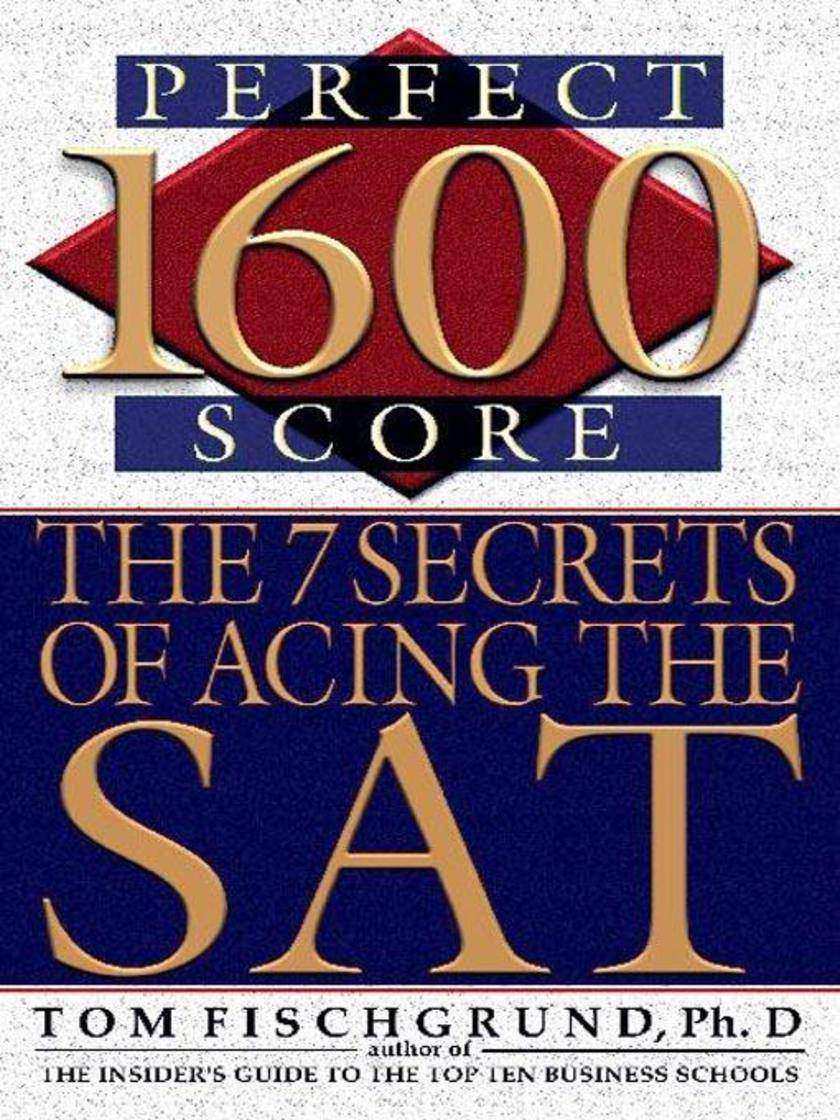
HarperCollins e-books
¥145.69
Drawing on the first study of 1600 scorers conducted with the full cooperation of the College Board, here are the 7 secrets to success on the SAT -- and in life.Every year roughly 2.3 million high school students take the SAT; of those, however, only 650 students on average achieve a perfect score of 1600. Such a statistic raises obvious questions: Who are these kidsWhat are they likeAnd how do they do it?In a new landmark study, educator and executive recruiter Tom Fischgrund became the first researcher ever granted comprehensive access to these high academic achievers by the College Board, the body that administers the SAT. Weaving together in-depth interviews with perfect-score students, insights from their parents, and exclusive College Board data, in 1600 Perfect Score he reveals the 7 secrets that separate the cream from the crop.Among the Revelations Attending small private schools (or any school with classes) doesn't always make a big difference ... but having strong family support does Paying for expensive classes or tutors doesn'talways make a big difference ... but takinglots of practice tests at home does Having a strongly motivating teacher doesn't always make a big difference ... but having an independent passion for learning definitely does Packed with intriguing case studies and practical advice -- and tips from the 1600 scorers themselves -- this essential book brings hard data and a new, more human perspective to one of the greatest challenges parents everywhere face: how to make sure their children have the best chance to thrive in high school, college, and beyond.
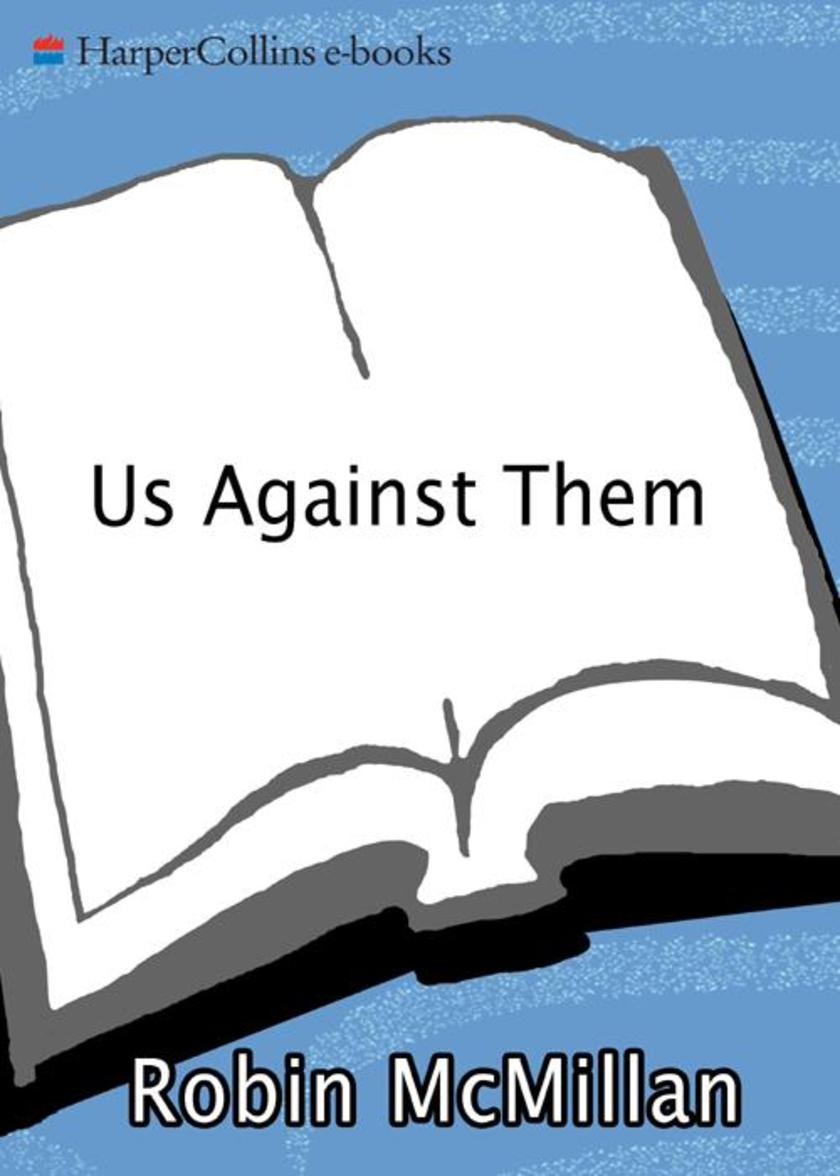
Harper
¥145.69
The Only Oral History of the Ryder Cup Since Its Genesis in 1927Us Against Them recounts how the Ryder Cup grew from the brink of extinction to become the most compelling and controversial tournament in golf. The popularity of the Ryder Cup, played every other year in the fall (alternately in the United States and in Europe), has soared in the last ten years. Its worldwide television audience is now the largest of any in golf, and the last tournament, in 2002, was viewed by an estimated 100 million fans.The story of this meteoric rise -- and all the rich history that predated it -- is told in the actual voices of more than forty players and other participants, including Ryder Cup players and captains Curtis Strange, Dave Stockton, Sam Torrance, and Tony Jacklin; American legends Hale Irwin and Billy Casper; U.S. network television commentators Peter Alliss, David Feherty, Peter Oosterhuis, and Jimmy Roberts; Tour players Peter Jacobsen, Tom Lehman, and Brad Faxon; and such names from the past as Dow Finsterwald, Johnny Pott, and Tommy Bolt. More than recalling simply the play-by-play, Us Against Them also goes behind the scenes -- to the Ryder Cup tournament director whose participation almost ended in his own bloody death, to the matches in Britain that nearly ended in blows, to the car crash that some say decided the outcome of one of the matches, to a small plane carrying players that almost fell from the sky, and to the prominent American network golf commentator who introduced himself to a U.S. president while dressed in a large plastic garbage bag!
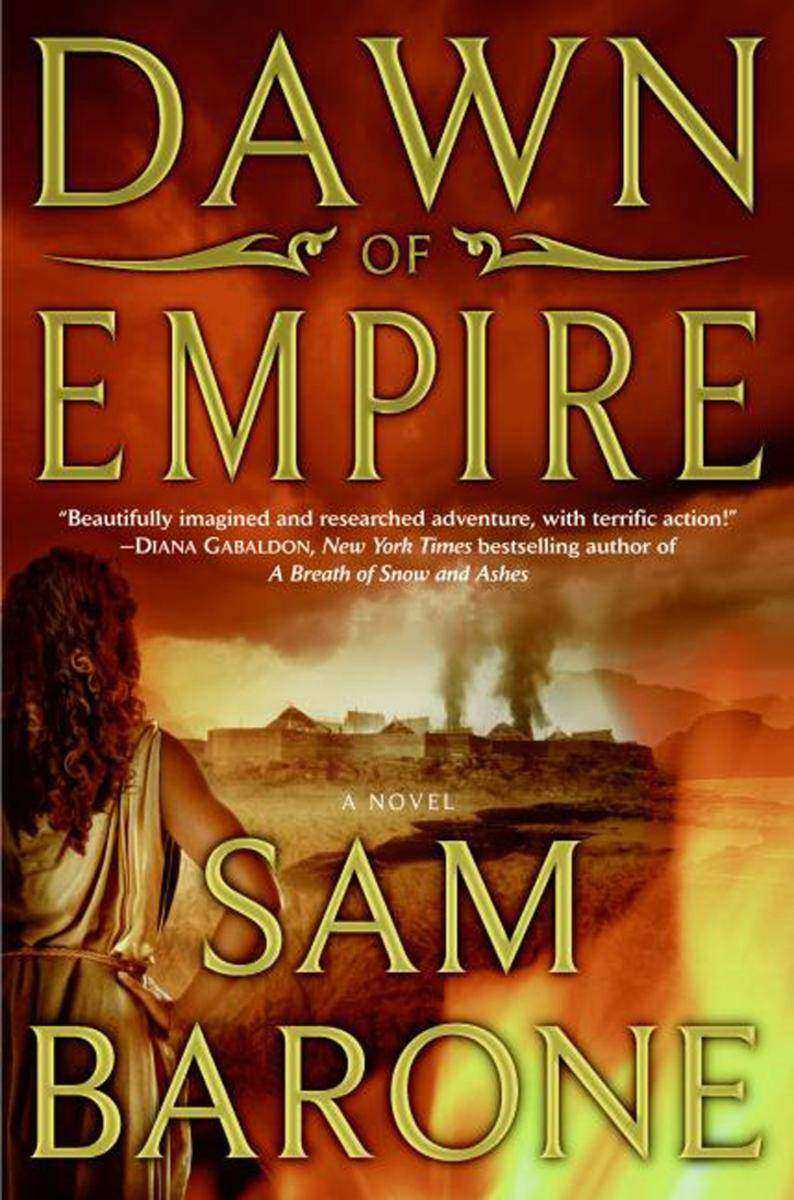
Dawn of Empire
¥145.69
Five millennia ago, on the eastern bank of the river Tigris, the course of human history changed forever . . .The people of Orak cherish their peaceful village and the life they have made. Though not proficient with the bow or sword, they possess a weapon far stronger: the ability to coax food from the ground. This is why the barbarian leader Thutmose-sin hates and fears them. As his marauding clan of bloodthirsty warriors readies itself for the plunder and the kill, the fate of the village rests with the outcast barbarian Eskkar and the woman he loves, the wise and beautiful slave girl Trella—and on a bold, remarkable, never-before-tested plan of defense. For those who have known peace must turn their hands to war, to save from the savage invaders not only their families but their way of life.
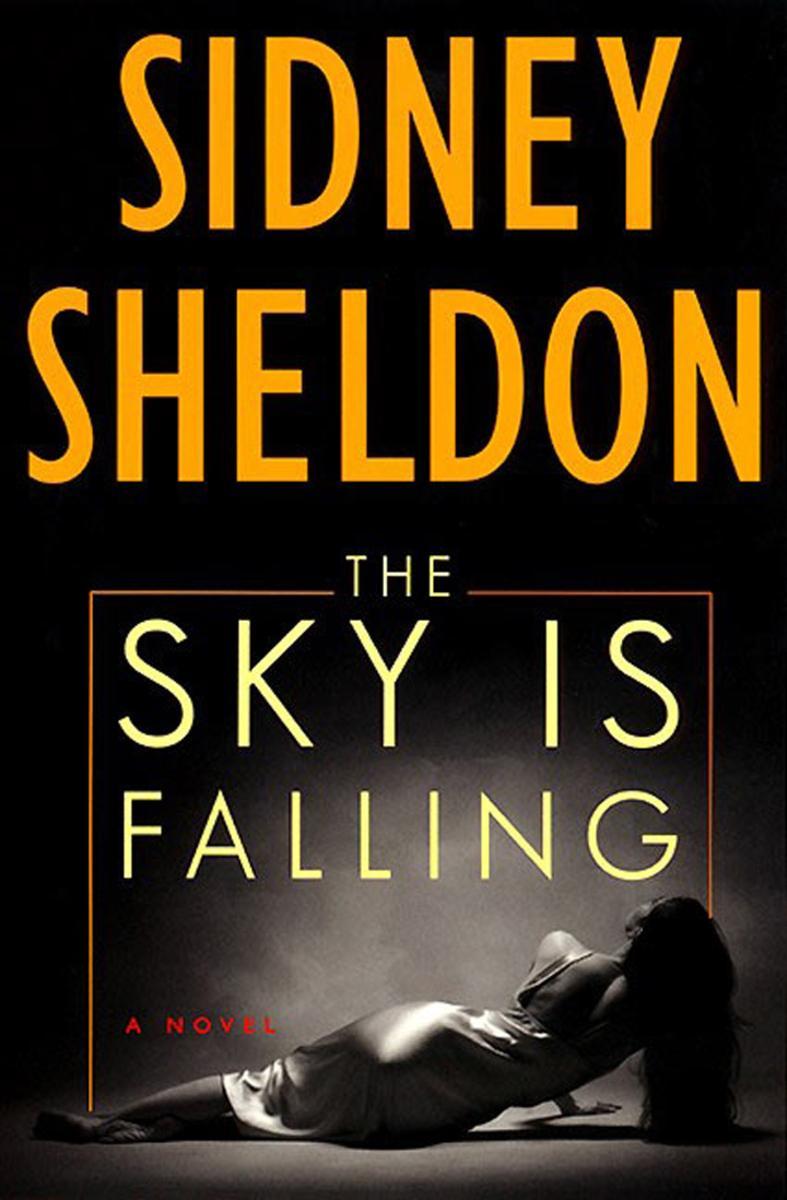
The Sky Is Falling
¥145.55
If America had a royal family, the Taylor Winthrops would wear the crown. The popular, charismatic Winthrops have captured the imagination of the world with their public service, their enormous charity, and their glamorous lives. But in the period of one year., all five members of the family are killed in a series of accidents. Beautiful young anchor woman Dana Evans begins an investigation and starts unraveling compelling evidence that she can hardly believe.In her determined pursuit of the truth, Dana never anticipated the cat-and-mouse chase that leads her through a half dozen countries in search of a remorseless killer. As she closes in on her suspect, the shocking secrets she uncovers place Dana and her young son in dire jeopardy. Can Dana outwit her pursuers and expose the truth that will astound the world?A dynamite thriller filled with all the elements that have made his previous works phenomenal bestsellers) The Sky Is Falling is Sidney Sheldon at his sizzling best.




 购物车
购物车 个人中心
个人中心



